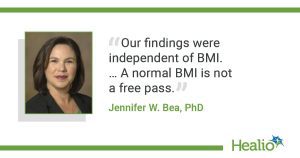For some time now, we have discussed menopause and how it affects us with the relevant things to expect. We have discussed different treatment paths you can engage in, giving yourself better health and feeling. I have always advised that we carry our medical doctors along as we undergo menopause and the postmenopausal experience.
Menopausal symptoms are unique to each woman, but of course, it will be a combination of some of the already identified menopausal symptoms. While the symptoms are identified, the experience differs from woman to woman. So, you are unique in your menopause experience. That is why you can’t just use medications used by someone else.
If you want to get some medication, it must be on the advice of your medical practitioner. It is because they know your medical history. They also understand your present situation. So, they will offer advice that suits your unique experience to give you great relief. It will also help you to cope with menopause. It is a regular life cycle for women. You can’t escape it as long as you live long enough.
But there arises a situation concerning getting medical advice or treatment for menopause from our medical doctors. The issue is that many have argued that medical doctors cannot treat menopause. Some even support their argument with claims that they know nothing about. This issue has caused more harm to the way other women discuss menopause with their doctors.
The question is, is it true that medical doctors don’t know about menopause? Of course not. That statement is far from the truth. This notion should not make you stop sharing your experience with the medical doctor. I might agree if they mean that medical doctors don’t know much about some menopausal symptoms to treat.
This view brings us to the point that some people are experts in menopause who can use both experience and expertise to help women as they grow through menopause. You will agree that the place of experts in a field of study brings a lot of clarity, precision, and accuracy to the treatment. It is an important reason you may need to consider seeing a menopause practitioner.
Who is a Menopause Practitioner?

A menopause practitioner is anyone skilled with knowledge of menopausal symptoms and how to manage the related consequences for an easy life transition. We all know that menopause is a transition period for every woman. This transition period may be painful and strange for many women if they don’t have enough information.
With the help of a menopause practitioner, a woman can be given adequate treatment. All that menopause practitioner wants to achieve is to make sure that women can cope with menopausal symptoms, help women understand the changes that occur, and still live a life of impactful value.
What Does a Menopause Practitioner Do?
A menopause practitioner will do everything a medical doctor will strive to do with a menopausal woman. The only difference is that with a menopause practitioner, some professional touches and views will accompany this service. It does not imply that medical doctors are not professionals. It only emphasizes that a menopause practitioner is mainly for this purpose.
Every menopause practitioner has a goal first to make the woman understand that menopause is normal for every woman, plus that it is not the end of the world because of the changes and experiences that come with it. This understanding is the first task of a menopause practitioner with his or her patients. This understanding is vital if their consultation is successful.
I understand that given the changes and the feelings that come with them, you may feel like taking your own life or attempting suicide due to prolonged depression. You must understand that menopause is not a phase of your life that ends it or makes you frustrated. It is just an aging need that is reflected in all areas. A menopause practitioner will help you see this.
A menopause practitioner is also responsible for providing the menopausal woman with treatment options that may suit her case and give the best results. Usually, for menopausal symptoms, there are more than two ways to treat the symptoms based on the woman’s complaint and other factors. It is the menopause practitioner that will provide the treatment options.
If you and your menopause practitioner agree that you need estrogen therapy, one of the usual solutions for menopause, there are different ways to get estrogen therapy. With the menopause practitioner, you can know the various options and select the best option based on your unique features.
Why You Should Seek Care from a Menopause Practitioner

Menopause is a significant life changer for women. It changes both bodily health and vagina health. If it is not well taken care of, it may cause a lot of challenges for the woman. Every woman needs to take their menopausal treatment seriously before things go out of hand. It doesn’t mean every menopausal symptom will go out of hand; it is just a precaution.
While there are different ways to treat your menopausal symptoms, never do any based on the information you get from a friend or read about. Your experience may not be the same as your friend or the writer of whatever you read. Don’t just take their words at face value. There is more menopausal symptoms treatment.
We have advocated that women should not do self-medication or be quiet during menopause at any point in time. We have discussed several demerits of this, and we advise that you work with your medical doctor. While this is excellent advice to work with, there is something more substantial.
Something important about this is that even though you are advised to work with your medical doctor, there is more to the kind of doctor you will be working with for your menopause experience. That is a menopause practitioner. There are reasons why you should be working with a menopause practitioner as you pass through menopause.
Firstly, you need to understand that a menopause practitioner has a more directed knowledge of dealing with menopause and helping women maximize their menopausal symptoms. This reality is the first reason every woman should consider working with a menopause practitioner for a better life and experience as they go through this phase.
It is a well-known fact that when you are working with a specialist in a particular field, they will help provide accurate information about the situation from the perspective of a professional trained for this purpose solely. It also means that their solution will come from a deeper understanding of the situation. You can expect an accurate answer.
So, don’t overlook this fact, and don’t think you know too much that can help you with your menopause. Working with a menopause practitioner is an important step you need to take. Drinking from their wealth of knowledge will help you to have more insight into your experiences with menopause.
Also, an important reason to work with a menopause practitioner is their experience. Experience sometimes provides one with more profound insight that will reveal some deeper secrets on a subject matter. Those who have worked in different areas of life issues can attest that experience over a period brings some more profound insights that help to comprehend complexities.
Experience is one advantage a menopause practitioner has over general medical doctors. Their wealth of experience in menopause year in and year out makes them see many deep things and can easily show the complexities. Since they can understand them more, they will be able to provide answers and advice quickly to help a menopausal woman.
Furthermore, apart from providing the answers to your menopausal questions based on your experience, a menopause practitioner can also offer pertinent unique explanations for why you feel what you feel and what it may be in your body. There is a difference between being treated by a doctor and understanding what you are being treated for.
Working with a general medical doctor may mean that you are being treated for your menopausal symptoms. Still, a menopause practitioner can describe how and why each of your menopausal symptoms comes. It includes the exact reasons and what to expect per time as the menopausal symptoms go on.
If there is a reason you should engage the menopause practitioner as you go through menopause, the first reason will be because of the precision of the menopausal symptoms. This precision on the symptoms helps them provide a tailored treatment for you. They know that menopausal symptoms and experiences are unique to each woman. So, they treat you like that with their in-depth knowledge and skill.
There is something you also need to consider about menopause as a whole. If you take time to study all our discussions on menopause, you will discover that menopause radiates around vagina health and the whole body’s health. The best way to treat this will be to combine the two knowledge and expertise to provide treatment.
Menopause practitioners combine general health knowledge with vagina care. It is an important reason you should consider seeing a menopause practitioner to help you with your menopausal experience. They will blend it with your unique health status, making it the best solution for you.
Another good reason you should seek care from a menopause practitioner is that they have access to newly discovered research work in the field and how it enables better menopausal symptoms treatment. It is part of their work to research this field and use the researched work.
It means that working with a menopause practitioner help to provide you with new techniques and technologies to treat your menopausal symptoms. It will help you to get treated in the best possible way. You will get the best results from your engagement with the menopause practitioner.
A gynecologist or an Endocrinologist: Who Do I Need to See for Menopause?

Menopause treatment is one factor that makes women visit medical doctors for those bold enough to see one. While many may visit a random doctor for help, some will visit their family doctor for treatment. However, this is well appreciated because it’s a good step in the right direction. At least you are seeking the solution on the right path.
One crucial problem to discuss quickly is that though some women would visit a doctor for help with their menopausal symptoms, they rarely discuss all of their symptoms and experience. It is mainly about excluding the vagina issues. Without consulting it all, you can’t get the best out of such a consultation. Discussing all makes you find help with the medical practitioner you are working with.
You need to settle this issue by discussing and explaining all the symptoms you experience in your menopause before consulting the doctor you are meeting for help. When you visit your medical doctor to find support for your menopause experience, choose to discuss everything. That decision is what will ensure you get the help that you seek.
So now, what kind of doctor are you supposed to visit for your menopausal treatment? That’s a question many people have been asking. We will be looking at two types of doctors and juxtapose which of them will be good enough for you to visit to treat the menopausal symptoms. So, let’s get started with the discussion.
To begin the discussion, I think it is pertinent to determine who a gynecologist or endocrinologist is. We also need to establish how each of them is related to menopausal symptoms treatment and why you have to choose between the two of them.
Who Is A Gynecologist And An Endocrinologist?
Let’s begin with the gynecologist. A gynecologist is a type of medical doctor specializing in the reproductive system. Their job is to diagnose and provide treatment for reproductive health issues. Due to where their focus is, certain body parts are part of their jurisdiction. It includes the reproductive organs.
The organs in their jurisdiction are the fallopian tubes, uterus, and ovaries. And since the sexual organs are involved, they are also part of the equation. I know you have heard about gynecologists, and you probably have met with one for treatment at one point or the other. We need to be on the same page on this.
So who is an Endocrinologist?
Here is another medical doctor specializing in glands and the hormones they synthesize. This set of doctors is trained to understand which hormone is working or not and trace it to the glands producing them. Theirs is about the functionality of the inner working of the body system.
I know they are a set of doctors that many don’t know. It is most likely that you don’t as well. It is only in severe hormonal conditions that people are referred to them for examination and possible treatment. Just be aware that they are trained to help patients with hormonal imbalances and other challenges.
Now that you understand these two words, “gynecologist and Endocrinologist,” and their meaning, we can proceed to take a look at other things about them together, especially how they both relate to menopause.
How Do gynecologists and Endocrinologists Relate to Menopausal Symptoms?
If you understand menopause very well, you will agree that it hangs on the two areas covered by these two professions, “gynecologist and Endocrinologist,” and the question is about how they relate to menopause symptoms. Let’s unravel how that works.
Menopause is essentially about the low level of estrogen in women. We know that estrogen is a hormone in a woman’s body that makes many things work. The lack of estrogen and its aftermath effect has caused menopausal symptoms. Remember that the need to treat the menopausal symptoms is the focus of this discussion. It is the connection of menopausal symptoms with an endocrinologist.
Menopause is, of course, related to the vagina. Vagina health worsens with menopausal symptoms except well treated. Women typically have vagina dryness, thinning vagina walls, and other issues. It affects the sexual life as it may make sex painful. All of these are part of the reproductive system. And this is the link between menopause and gynecology.
Gynecologist or Endocrinologist

Now, we have understood the two professions (Gynecologist and Endocrinologist) by what they stand for and what each is trained to do. We have also shown the link between these professions and menopausal symptoms treatment. I believe the short description is clear enough for this piece.
So the question is, which of these professions should be contacted for help with menopausal treatment? The two jobs link menopause because they address problems that come with menopausal symptoms. So, let me ask you. Who do you think should be contacted for menopausal treatment as a woman?
Well, I am sure any of them you choose will be somewhat fitting. You will have not just an excuse to argue for it but strong reasons to justify the answer. I understand that perfectly well. Even if you go by the descriptions we discussed earlier, there are strong reasons you can use to argue that.
Some would probably argue that since these two professions (Gynecologist and Endocrinologist) seem to look at menopause differently, one can consult both for treatment. Well, I can’t agree less. At least the two views will help you look at menopausal symptoms treatment holistically. This comprehensive view will help to solve a lot of issues.
Although, using these two views of professions simultaneously may come with some issues. Now imagine you visit a gynecologist today, and he recommends some drugs for you to take care of yourself and then see an endocrinologist the next day. He will also recommend medications for you. The simultaneous use of these drugs may cause problems.
First, the drugs may react together, leading to other chemical reactions. It may not benefit you and cause more harm than you think. So, save yourself the stress of causing more damage than you are trying to solve. Don’t try to combine the two professions for treatment at different consultations.
Another reason you should not combine the two professions for menopausal treatment is because of underlying medical conditions. Even if you discuss the underlying medical conditions with each of them, it doesn’t guarantee successful treatment because those drugs may cause reactions with each other that may affect your underlying medical conditions.
So, who then should we visit for help with menopausal treatment? The best option is still to work with a menopause practitioner. The reason is that a menopause practitioner will look at three significant ways before giving you recommendations for the treatment. Your medical history, hormonal issues, and vagina health are the three areas.
If you work with a menopause practitioner, you will get the best treatment if you are truthful and uncover details of all menopausal symptoms. It is the only way a specialist can assist you for better and healthier living. However, they will ask you questions that will help them provide you with a unique solution to your menopausal treatment.









